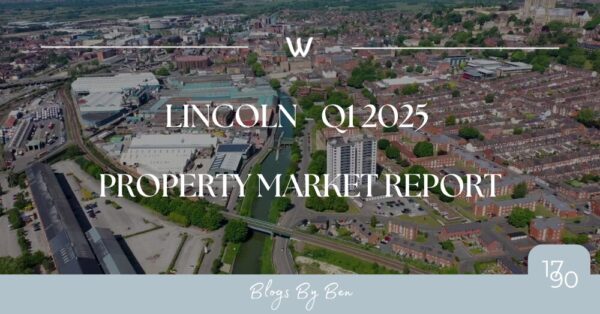Selling a home can be exciting and challenging, particularly when setting the right price. Many sellers make common mistakes that can undermine their success. From overpricing their property to ignoring market trends and not staging correctly, these errors can result in more extended listings and reduced profits. This piece covers the most frequent pricing mistakes home sellers make and provides practical tips on avoiding them, ensuring a smoother and more profitable selling experience.
1. Overpricing the Home
Overpricing a home is a common mistake that can prolong its time on the market and negatively impact buyers’ perceptions of its value. Correct pricing is key to attracting buyers and making a successful sale.
Listing a property above its market value can discourage interested buyers, who may see it as overvalued and look for better deals elsewhere. This mistake reduces buyer interest and can cause sellers to have unrealistic expectations about offers.
As the property remains unsold, the seller might lower the price, making the home seem undesirable or flawed, affecting its attractiveness.
Conducting a thorough competitive market analysis is essential to preventing these issues. This involves examining similar properties, reviewing recent sales data, and understanding neighbourhood trends.
Gathering buyer feedback or surveys can help sellers set a more appropriate and effective listing price.
2. Not Considering Market Trends
Ignoring current market trends can lead home sellers to make pricing mistakes, which can affect their property’s appeal and sale price.
Anyone selling a home must understand how market changes influence demand. Local economic indicators, buyer preferences, and seasonal changes can significantly affect property values.
Conducting a thorough market analysis helps sellers evaluate these trends and set a pricing strategy that appeals to buyers.
Sellers can position their properties competitively by using insights from local market conditions, increasing interest and potential returns. This strategic method improves market visibility and leads to a smoother selling process.
3. Not Factoring in the Home’s Condition
Ignoring a home’s condition when setting its price can lead to inaccurate property assessments and impact the perceived value.
When buyers look at properties, their expectations are influenced by the home’s visible condition, from landscaping to the roof. An effective pricing strategy should consider these factors to keep sellers competitive and address any necessary repairs or upgrades.
Home inspections are necessary because they provide an unbiased evaluation that can reveal underlying issues. This allows sellers to adjust their pricing to reflect the property’s strengths and areas requiring attention.
This approach helps balance buyer expectations, as buyers are becoming more discerning about the homes they wish to purchase.
4. Not Being Flexible with Negotiations
A lack of negotiation flexibility can prevent home sellers from receiving reasonable offers and lead to missed opportunities in a competitive market.
As the property market changes, sellers should be open-minded when dealing with potential buyers. This flexibility allows for better discussions, leading to higher prices and quicker sales.
Responding carefully and considering counter-offers when receiving an initial offer can keep negotiations moving forward. Being too rigid with pricing or unwilling to adjust to market conditions can significantly hinder the completion of a deal.
Being open to different pricing or payment terms can benefit sellers and buyers.
5. Not Hiring a Professional Estate Agent
Not hiring a professional estate agent can lead to missed opportunities for home sellers, especially regarding accurate market analysis and effective property marketing.
Agents have extensive knowledge of local market conditions, allowing them to set a competitive price that attracts buyers and maximises the seller’s return on investment. They understand current trends and can identify the best times to list properties, creating urgency and interest among potential buyers.
Experienced agents also excel in negotiations, effectively representing the seller’s interests to secure favourable terms. These advantages increase the chances of a successful home sale and reduce the risk of pricing errors that could result in extended market time or financial loss.
6. Not Staging the Home Properly
Poor home staging can significantly reduce a property’s appeal and negatively influence buyer perceptions, affecting its marketability and sale price.
Effective home staging is crucial in property marketing because it creates an inviting atmosphere that connects with potential buyers emotionally. By thoughtfully coordinating colours, furniture, and décor, sellers can showcase a home’s best features and help buyers imagine living there.
To achieve the best results, consider:
- Decluttering spaces to improve flow.
- Using neutral tones to attract a wider audience.
- Placing mirrors strategically to enhance light.
Inviting outdoor spaces can attract buyers by presenting the property as a welcoming retreat. This makes it both visually appealing and a place they can call home.
7. Not Marketing the Home Effectively
Ineffective home marketing can cause pricing errors by limiting buyer interest and reducing the visibility of property listings in a competitive market.
It is important to use diverse property marketing strategies. Online listings are key in today’s market, and enhancing them with high-quality images and detailed descriptions can attract potential buyers.
Targeted marketing efforts, such as using social media platforms or email campaigns, help property professionals reach specific audiences more likely to engage.
Being transparent about pricing builds trust and sets realistic expectations, making negotiations smoother.
Effective marketing can significantly increase buyer interest, leading to faster and more successful sales.
8. Not Being Aware of Closing Costs
Home sellers often overlook accounting for closing costs, leading to unexpected financial outcomes and unmet expectations during the selling process.
Not being fully aware of these expenses can bring surprising complications to the transaction. Typical closing costs include:
- Estate agent commission fees, usually 5% to 6% of the sale price
- Title insurance
- Inspection costs
- Various administrative charges
Understanding these everyday financial responsibilities can help sellers better prepare, ensuring a smoother and more efficient closing process. Awareness of these costs aids in budgeting and setting realistic expectations for the net proceeds from the sale.
9. Not Being Prepared for Unexpected Expenses
Not accounting for unexpected expenses during the home-selling process can cause financial strain and hinder a seller’s success in the property market.
Sellers often underestimate the costs of home inspections, such as necessary repairs that might require significant expenditures. Problems like plumbing issues, electrical updates, or pest infestations can arise, leading sellers to consider price reductions to attract buyers.
Additional unforeseen costs for staging, cleaning, or marketing the property can accumulate and further strain finances.
To handle these challenges, sellers should create a detailed budget with a contingency fund for repairs and unexpected expenses. Conducting thorough research and consulting with property professionals can also help sellers understand potential issues, allowing them to navigate the selling process more smoothly.
10. Not Understanding the Importance of Timing
Understanding the timing in the property market is crucial for home sellers, as it affects pricing strategies and sales trends.
Recognising market conditions is key. Prices tend to rise in a seller’s market with high demand and low inventory. Conversely, prices may drop in a buyer’s market with too many homes. Each situation has its own set of opportunities and challenges.
Sellers can better position their properties by staying updated on market conditions influenced by economic indicators, interest rates, and seasonal trends. Adjusting pricing strategies to match the market can lead to quicker sales and maximise profits, ensuring a competitive edge.
How Can Home Sellers Avoid These Pricing Mistakes?
Home sellers can avoid common pricing errors by using effective strategies, conducting detailed market analysis, and seeking property advice and education.
Understanding local property values and buyer behaviour is crucial for setting a competitive price. Sellers should start by researching recent sales of similar homes in their area to gain insights into market trends.
Working with property professionals adds credibility to pricing, leveraging their expertise and access to valuable data.
Online resources and tools can give sellers the skills and knowledge to navigate the changing market. This can keep them informed and prepared to make strategic decisions during the selling process.
What Are the Benefits of Hiring a Professional Estate Agent?
Hiring a professional estate agent provides many benefits, such as expert advice on pricing strategy, market analysis, and negotiation techniques that can improve sales results.
These agents understand local trends and property values, enabling sellers to set competitive prices and effectively attract buyers. Their negotiation skills can significantly impact the final price in the seller’s favour, ensuring each offer is carefully considered.
An experienced agent is skilled at managing the complexities of the home selling process, from preparing a property for viewings to handling inspections and completion details. This expertise saves time, reduces stress, and helps sellers avoid common issues that could disrupt a sale.
What Are the Most Effective Ways to Market a Home?
The best marketing strategies for a home use a combination of targeted and property marketing strategies to attract buyers and increase visibility.
Sellers can use online valuations to give potential buyers a clear idea of the property’s value compared to similar listings. Promoting through social media extends the reach further, using engaging visuals that can be shared widely, creating interest in the listing.
Hosting open houses allows interested buyers to experience the home first-hand, building emotional connections that can lead to offers. These varied methods attract a larger audience and increase the chances of a successful sale.
What Are the Most Common Closing Costs for Home Sellers?
Understanding standard closing costs for home sellers is essential for managing finances and setting expectations during the selling process.
These costs usually include:
- Estate agent commission fees
- Stamp duty from local governments
- Completion fees for closing services
These expenses can vary significantly based on factors such as the property market, property location, and the home’s sale price.
To be well-prepared, sellers should research local market trends, get advice from their estate agents, and include these costs in their budgeting to ensure a smooth transaction.
How Can Home Sellers Prepare for Unexpected Expenses?
Home sellers can prepare for unexpected costs by creating robust strategies, including budgeting for potential expenses identified during the home inspection.
This proactive approach protects sellers from unforeseen costs after listing the property and strengthens their negotiating position. By reserving a specific amount, they can address repair or upgrade issues that may arise during inspections.
Conducting thorough home inspections before listing helps sellers find and resolve problems early, creating transparency and building trust with potential buyers.
This helps sellers present their homes attractively, increasing their appeal and reducing last-minute surprises that could disrupt a sale.
What Are the Best Times to Sell a Home?
Determining the best times to sell a home is essential, as timing can significantly affect pricing strategy and the sale’s success in changing market conditions.
Seasonal trends can significantly impact the property market, creating opportunities for sellers and buyers. For example, spring often starts the home-buying season, attracting more buyers looking to move before summer. In contrast, winter may slow down, leading to a more favourable buyer’s market.
Sellers should also consider local economic factors, such as job growth and interest rates, which can affect supply and demand. Understanding these dynamics helps homeowners price their properties strategically, ensuring they attract the right buyers at the right time.



